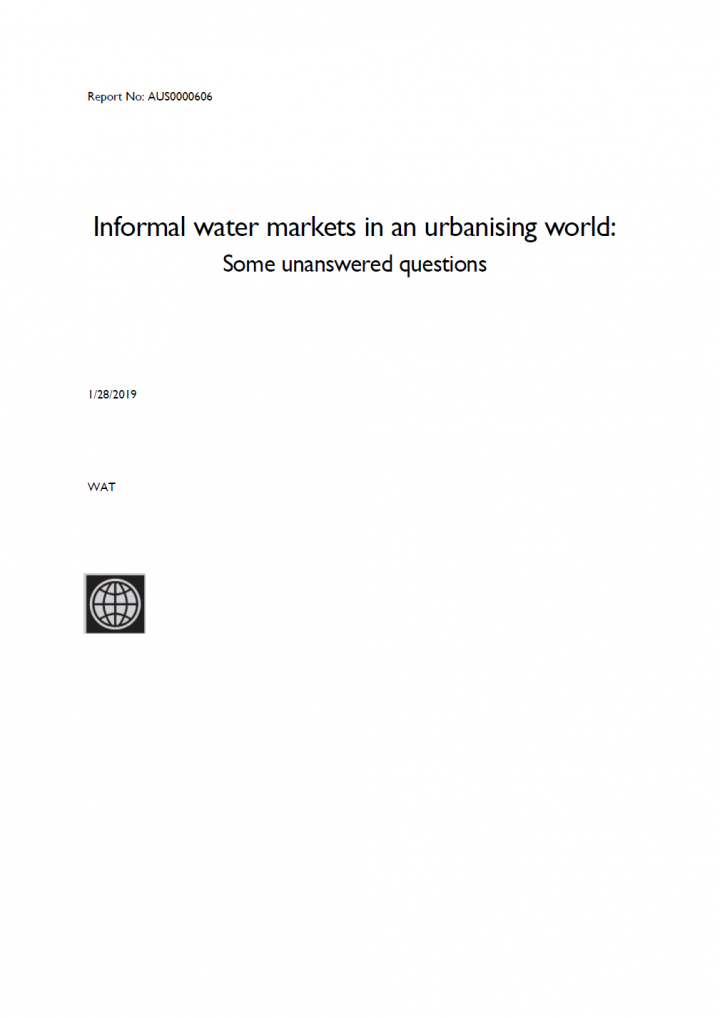Informal water markets in an urbanising world: Some unanswered questions The World Bank (2019)
Delivering safe and sustainable water supplies presents a fundamental challenge for an urbanising planet. Approximately 1.5 million people migrate to cities and their peri-urban fringes each week, and the fastest growth occurs in small to intermediate sized cities where infrastructure and governance capacity lag (Birkmann et al., 2016). Piped water systems are struggling to keep pace. In this context formal water markets have languished, while informal water markets have proliferated and thrived. This report takes stock of what is known about informal markets and asks whether they exploit the needy, earn exceptional profits or in fact provide a valuable and cost effective service to a vast unserved urban population.
The cost of extending piped connections for a global population approaching 10 billion by 2050 is estimated to surpass $60 trillion in capital asset values (Larsen et al., 2016). This scale of investment is out of reach in many parts of the world where the need is greatest. There is increasing evidence that past paradigms may not be sufficient or scalable, highlighting the need for innovations and sparking interest in water markets to improve water allocation and water service delivery. In this context, there has been growing consideration of ‘off-grid’ alternatives for delivering on the Sustainable Development Goals (SDGs). Informal water markets, involving small scale water enterprises, are one example of this trend. This report takes stock of the global evidence on informal water markets with a primary focus on small-scale, private water service providers in urban contexts. The focus is on whether and how informal markets can be part of an overall strategy to provide safe, affordable and reliable water services, particularly for the poor.
The report investigates the theory, evidence and gaps regarding informal markets for water services. The analysis draws on data from over 100 studies of informal urban water markets, published in the past forty years with a primary focus on the findings from the past 10 years. It also documents two in-depth studies from Kathmandu and Yemen, which provide insight from two regions at the leading edge of urbanisation and fragility challenges, respectively.
Bibliographic information
The World Bank (2019). Informal water markets in an urbanising world: Some unanswered questions The World Bank
Filter / Tags
Peri-urbanRuralUrban (entire city)English
Downloads
Informal water markets in an urbanising world: Some unanswered questions
Type: application/pdf
Size: 1.31 MB

